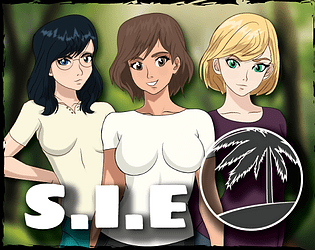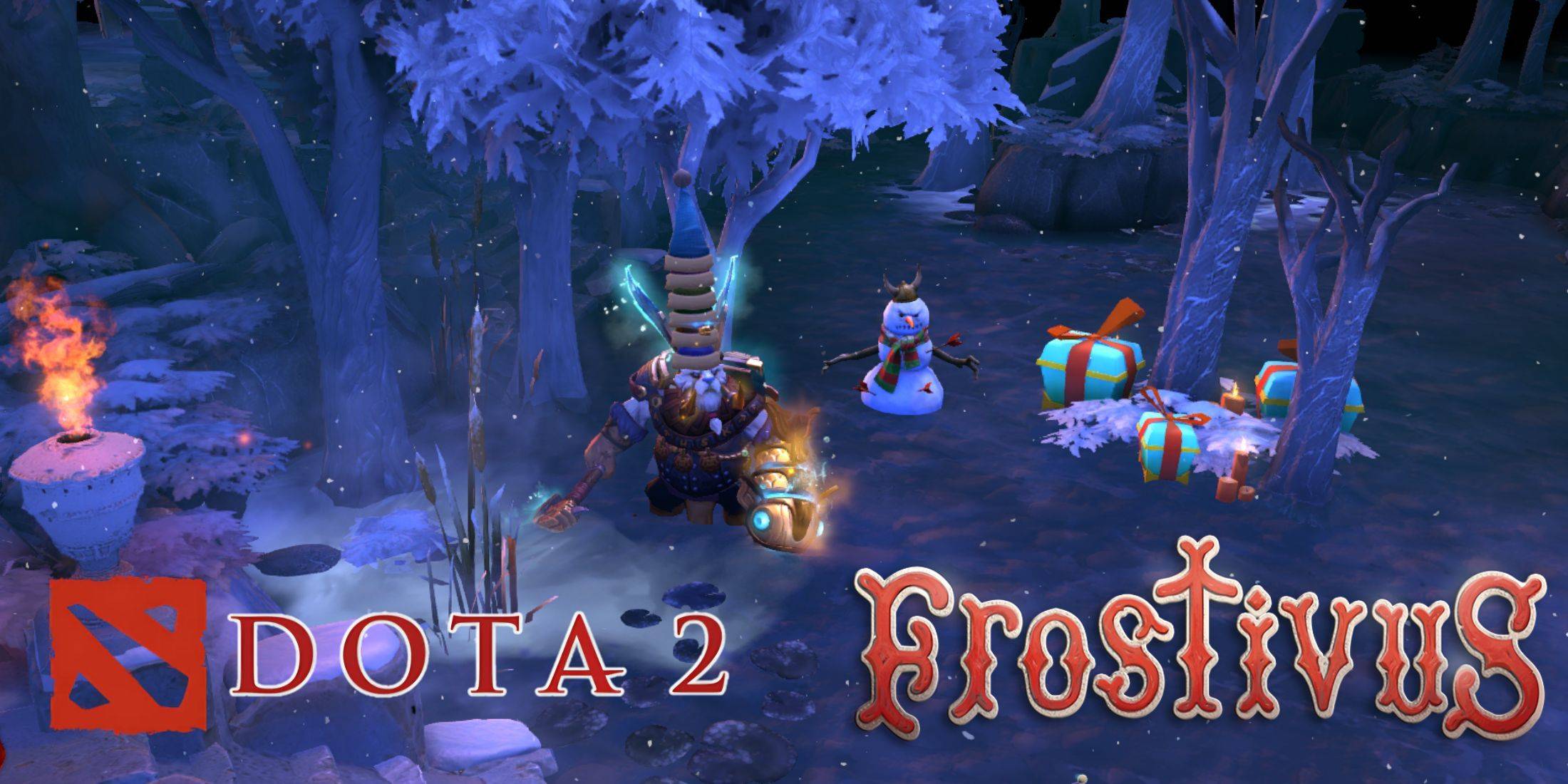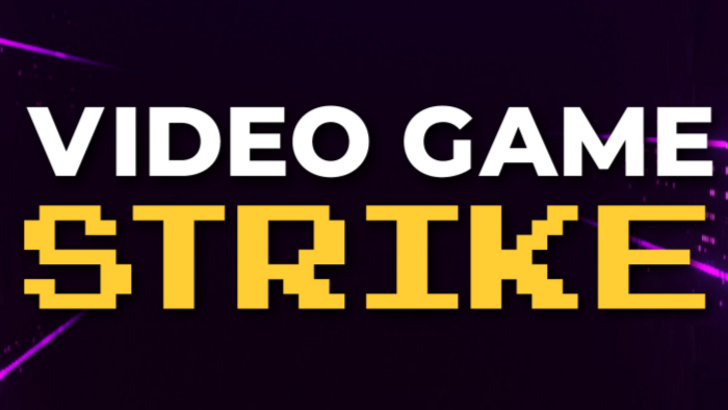 SAG-AFTRA's strike against major video game companies, including Activision and Electronic Arts, highlights crucial concerns about AI usage and fair compensation. This article explores the union's position, the proposed solutions, and the ongoing negotiations.
SAG-AFTRA's strike against major video game companies, including Activision and Electronic Arts, highlights crucial concerns about AI usage and fair compensation. This article explores the union's position, the proposed solutions, and the ongoing negotiations.
SAG-AFTRA Initiates Strike Against Video Game Giants
Key Issues and the Strike Announcement
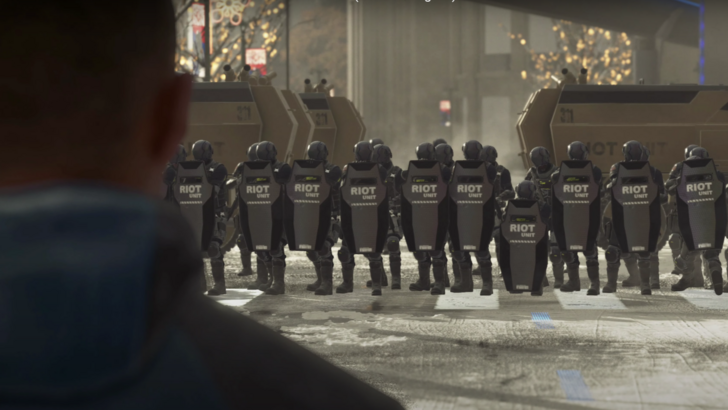 On July 26th, SAG-AFTRA launched a strike against prominent video game companies, including Activision, Electronic Arts, and others. This action, following prolonged unsuccessful negotiations, underscores deep-seated concerns about the responsible use of AI in the industry. The union's National Executive Director and Chief Negotiator, Duncan Crabtree-Ireland, announced the decision after over a year and a half of stalled talks.
On July 26th, SAG-AFTRA launched a strike against prominent video game companies, including Activision, Electronic Arts, and others. This action, following prolonged unsuccessful negotiations, underscores deep-seated concerns about the responsible use of AI in the industry. The union's National Executive Director and Chief Negotiator, Duncan Crabtree-Ireland, announced the decision after over a year and a half of stalled talks.
The core issue centers on the unregulated use of AI. While not opposed to AI technology itself, the union expresses serious apprehension about its potential to replace human performers. Key concerns include unauthorized use of actors' voices and likenesses for AI-generated content, and the potential for AI to usurp smaller roles that are vital for less experienced actors' career development. Furthermore, ethical considerations arise when AI-created content contradicts an actor's personal values.
Temporary Agreements and Industry Workarounds
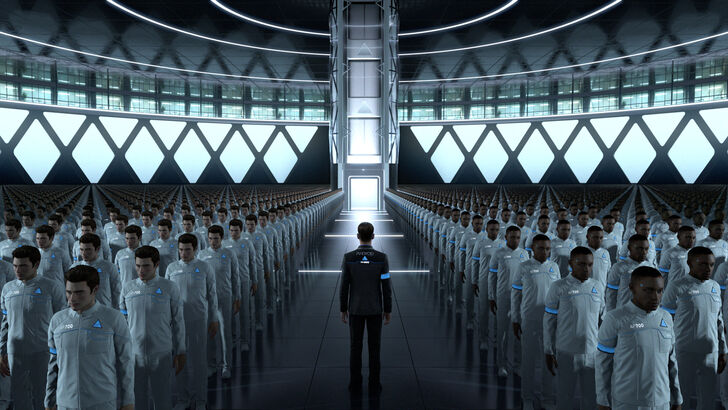 In response to the ongoing dispute, SAG-AFTRA has introduced new agreements to address the challenges presented by AI and other industry practices. The Tiered-Budget Independent Interactive Media Agreement (I-IMA) offers a flexible framework for projects outside the scope of traditional contracts. This four-tiered system adjusts rates and terms based on the game's budget, encompassing projects between $250,000 and $30 million.
In response to the ongoing dispute, SAG-AFTRA has introduced new agreements to address the challenges presented by AI and other industry practices. The Tiered-Budget Independent Interactive Media Agreement (I-IMA) offers a flexible framework for projects outside the scope of traditional contracts. This four-tiered system adjusts rates and terms based on the game's budget, encompassing projects between $250,000 and $30 million.
This agreement, developed in February, was specifically designed for indie and lower-budget games and incorporates AI protections initially rejected by the video game industry bargaining group. A significant step was a January side deal with AI voice company Replica Studios, granting union actors the ability to license digital voice replicas under specific terms, including the right to refuse perpetual usage.
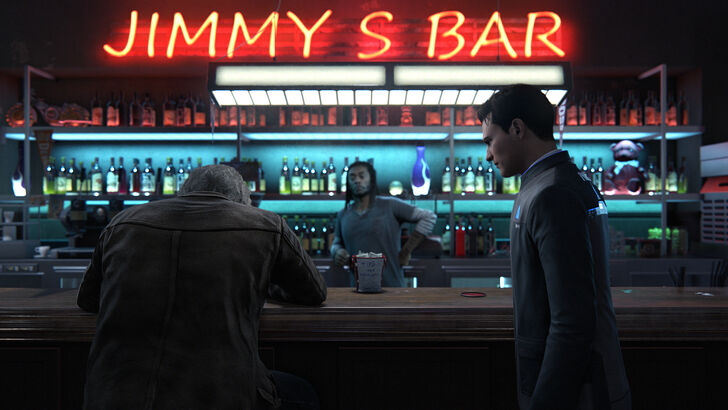 The Interim Interactive Media Agreement and the Interim Interactive Localization Agreement offer temporary solutions covering various aspects, including:
The Interim Interactive Media Agreement and the Interim Interactive Localization Agreement offer temporary solutions covering various aspects, including:
⚫︎ Right of Rescission and Producer Default ⚫︎ Compensation and Rate Maximums ⚫︎ AI/Digital Modeling Protections ⚫︎ Rest and Meal Periods ⚫︎ Late Payment Procedures ⚫︎ Health and Retirement Benefits ⚫︎ Casting and Auditions (Self-Tape) ⚫︎ Overnight Location Consecutive Employment ⚫︎ Set Medical Personnel
It's important to note that these agreements exclude expansion packs, DLC, and post-release add-ons. Projects approved under these interim agreements are exempt from the strike, allowing work to continue during the labor action.
The Path to the Strike and the Union's Resolve
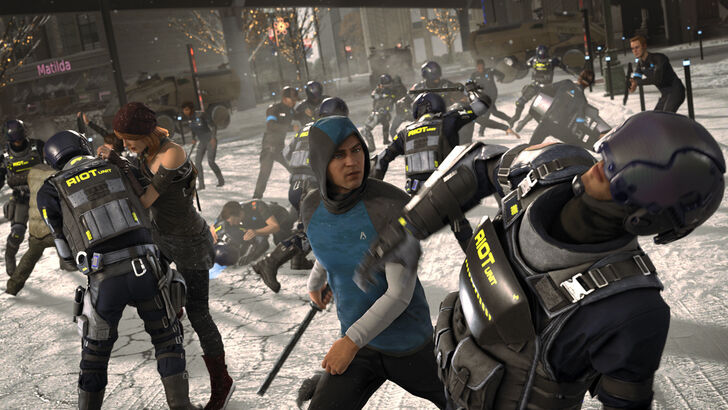 Negotiations began in October 2022. On September 24, 2023, SAG-AFTRA members overwhelmingly authorized a strike with a 98.32% yes vote. While progress was made on several issues, the lack of enforceable AI protections remains the primary sticking point.
Negotiations began in October 2022. On September 24, 2023, SAG-AFTRA members overwhelmingly authorized a strike with a 98.32% yes vote. While progress was made on several issues, the lack of enforceable AI protections remains the primary sticking point.
SAG-AFTRA President Fran Drescher stated, “We’re not going to consent to a contract that allows companies to abuse A.I. to the detriment of our members.” Duncan Crabtree-Ireland emphasized the industry's substantial profits and the vital contributions of SAG-AFTRA members. Sarah Elmaleh, Chair of the Interactive Media Agreement Negotiating Committee, highlighted the employers' unwillingness to adopt fair AI practices.
 As the strike continues, SAG-AFTRA remains dedicated to securing fair treatment and AI protections for its members within the evolving video game industry.
As the strike continues, SAG-AFTRA remains dedicated to securing fair treatment and AI protections for its members within the evolving video game industry.
 Home
Home  Navigation
Navigation






 Latest Articles
Latest Articles










 Latest Games
Latest Games









